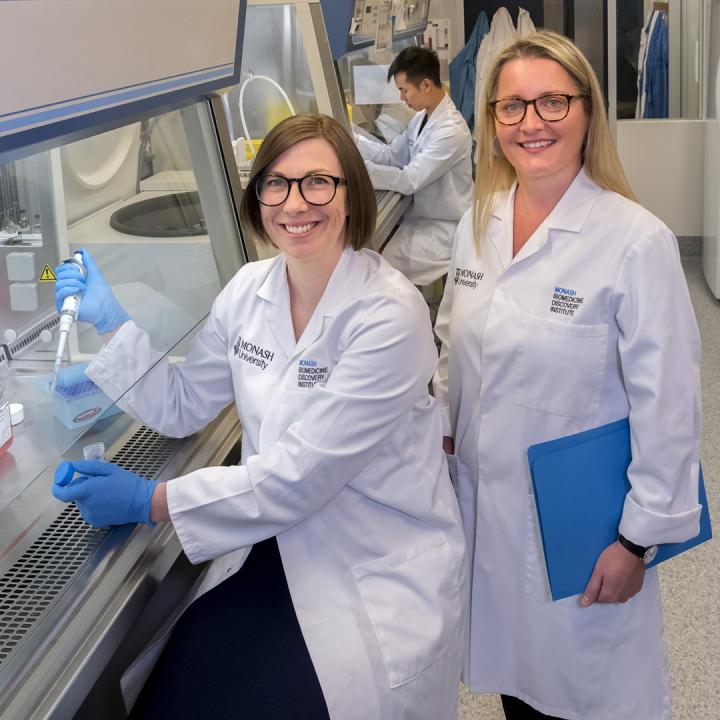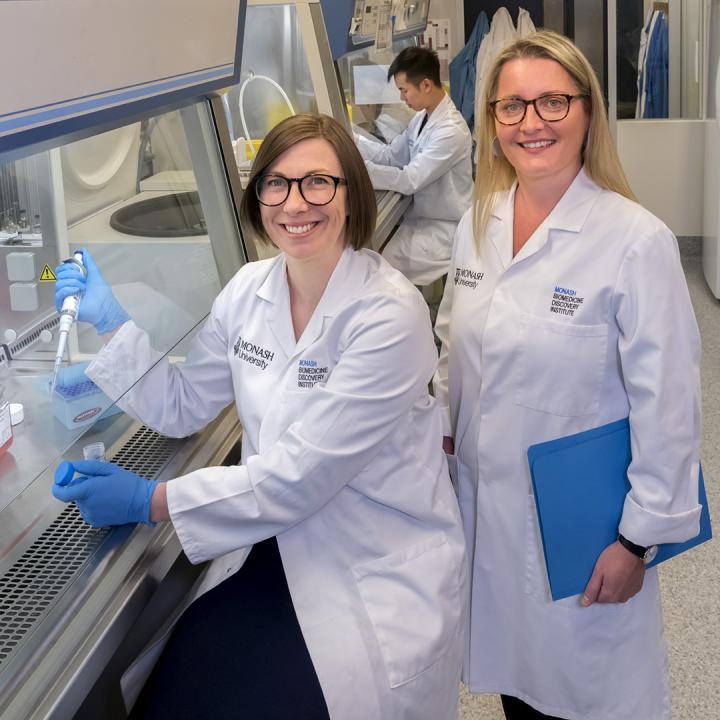
Credit: Monash University
It's called the Silver Tsunami – the increased incidence of cancer with ageing, combined with the rapidly ageing population means that the Australian health system needs to prepare for an onslaught of cancer diagnoses.
A new study out of Monash University, published today in the journal Cell Reports, may have found a group of immune cells that increase in number with age but are too worn out to fight off diseases.
Professor Nicole La Gruta and Dr Kylie Quinn, from Monash University's Biomedicine Discovery Institute, have found that a subset of immune cells, called virtual memory T cells, make up around 5% of T cells in young animal models and humans but accumulate significantly with old age and lose the ability to become activated. Importantly, the Monash researchers found that another subset, called true naïve T cells, retain their capacity to mount an immune response but decline in frequency dramatically with increasing age, from 90 per cent to 30 per cent in animal models and humans. These shifts are likely caused by age-related inflammation or "inflamm-ageing".
According to Professor La Gruta, the accumulation of dysfunctional virtual memory T cells, in addition to the loss of true naïve T cells, may explain why older people have reduced immune responses to cancer and vaccines, and why cancer immunotherapy is less successful in the elderly.
"In cancer immunotherapy, a patient's own T cells are stimulated to kill cancer cells and it has been hugely successful for certain forms of cancer. Unfortunately, older patients or people over 65 years of age respond less well than younger ones," Professor La Gruta said.
"This may be because of the differences we see in these T cell subsets in older versus younger patients," she said.
"Now that we understand the impact of ageing on these T cells, we may be able to selectively target them to improve this cutting edge cancer treatment."
According to Prof La Gruta and Dr Quinn, this may mean developing treatments to remove dysfunctional virtual memory T cells or enrich for functional true naïve T cells during cancer immunotherapy or developing treatments that reduce chronic inflammation to prevent immune decline.
"Using these observations, we may be able to tailor cancer immunotherapy specifically for the needs of an older patient's immune system- this is where medicine must head to meet the needs of our ageing society," Professor La Gruta said.
Cancer – Australian Institute of Health and Welfare
In 2014, people aged 65 and over were estimated to account for more than:
- half (58 per cent) of new cancer cases diagnosed
- three-quarters (77 per cent) of cancer related deaths
Overall, for older Australians, lung cancer is the most common cause of death from cancer, followed by prostate, colorectal, pancreatic, and breast cancer (women).
Read the full paper in Cell Reports titled Age-Related Decline in Primary CD8+ T Cell Responses is Associated with the Development of Senescence in Virtual Memory CD8+ T Cells.
###
About the Monash Biomedicine Discovery Institute
Committed to making the discoveries that will relieve the future burden of disease, the newly established Monash Biomedicine Discovery Institute at Monash University brings together more than 120 internationally-renowned research teams. Our researchers are supported by world-class technology and infrastructure, and partner with industry, clinicians and researchers internationally to enhance lives through discovery.
Media enquiries:
Tania Ewing
0408 378 422
[email protected]
Media Contact
Grace Williams
[email protected]
61-399-059-597
@MonashUni
http://www.monash.edu.au
Related Journal Article
http://dx.doi.org/10.1016/j.celrep.2018.05.057





